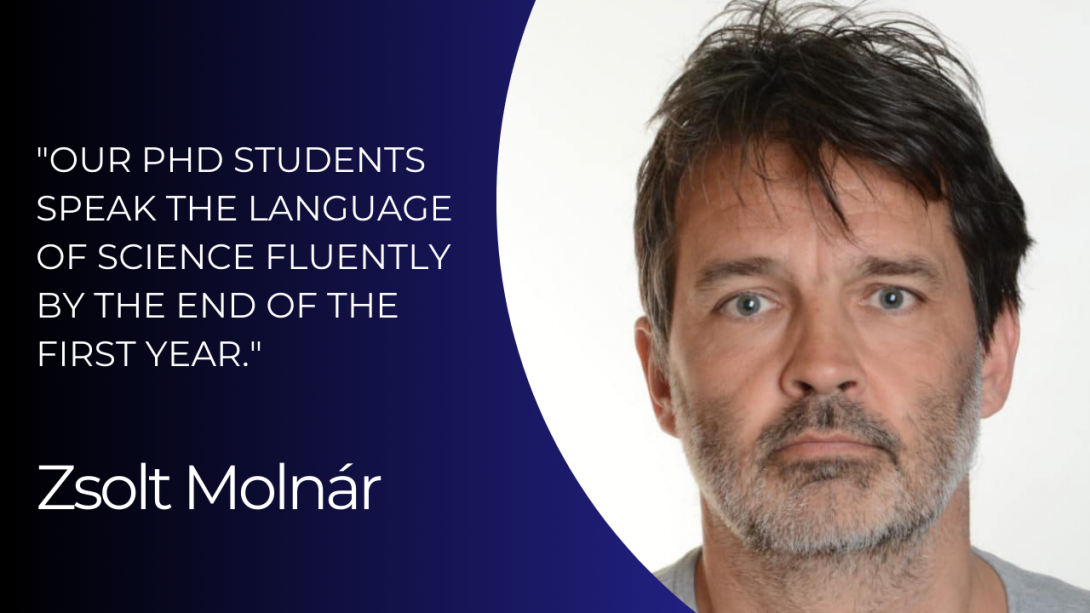
He has been involved in the work of the Centre for Translational Medicine from the very beginning. Now he directly supports the academic progress of fourteen PhD students with his international experience, anesthesiology and intensive care knowledge. In November, Prof. Dr. Zsolt Molnár was named the Supervisor (Year 2-3) of the Month.
“Our story began in 2019 when Prof. Dr. Péter Hegyi invited me to start building the Critical Care Research Group at the Centre for Translational Medicine (CTM). As an anesthesiologist-intensivists with decades of practice and twenty years of research experience, I gladly took on the task. What I liked most about the program was that it provided a professional training structure and theoretical education for students, which I had not seen in Hungary before. I started my clinical research in England, but the CTM is well-structured even compared to that. The students learn the basics of scientific work in three months, and by the end of the first year, they speak the language of science fluently. This could lead us to our ultimate goal of getting large numbers of specialists involved in ongoing scientific work in this country. This is crucial because we have a significant lag in this field compared to Western Europe. In intensive therapy, for example, we are 25 years behind the United Kingdom. This is not only a Hungarian problem but an issue in Eastern Europe in general.”
The journey of translational medicine in Hungary begun in Pécs and continued even after the center moved to Budapest. “At Semmelweis University, the professionalism already present in Pécs received great central support, and the work could take on serious dimensions. The result is the approximately 260 PhD students we are currently working with.” Prof. Dr. Molnár is directly responsible for fourteen students, but as a group leader, he also supervises the work of many more. This work gives the professor a multidisciplinary perspective, allowing him to look into border areas that he did not deal with in his daily practice. Therefore, he also learns a lot from the program.
“Training young researchers is essential because they bring a scientific approach to their institutions and influence others. This way, even professionals who have not participated in such training can understand the essence of translational medicine. It is a great source of motivation and self-confidence for doctors to see that their work is based on scientific results. It can also contribute to improving the atmosphere in workplaces. In the longer term, more clinical trials could be initiated in Hungary, so that we can also make our mark on the international stage. This could place Hungarian professionals and clinics on the international scientific map. This is not the case today, there are very few Hungarian speakers invited at major conferences, and there are few Hungarians amongst the authors of important publications. But if translational medicine becomes widely known, this could change.”
(Emese Szabó)